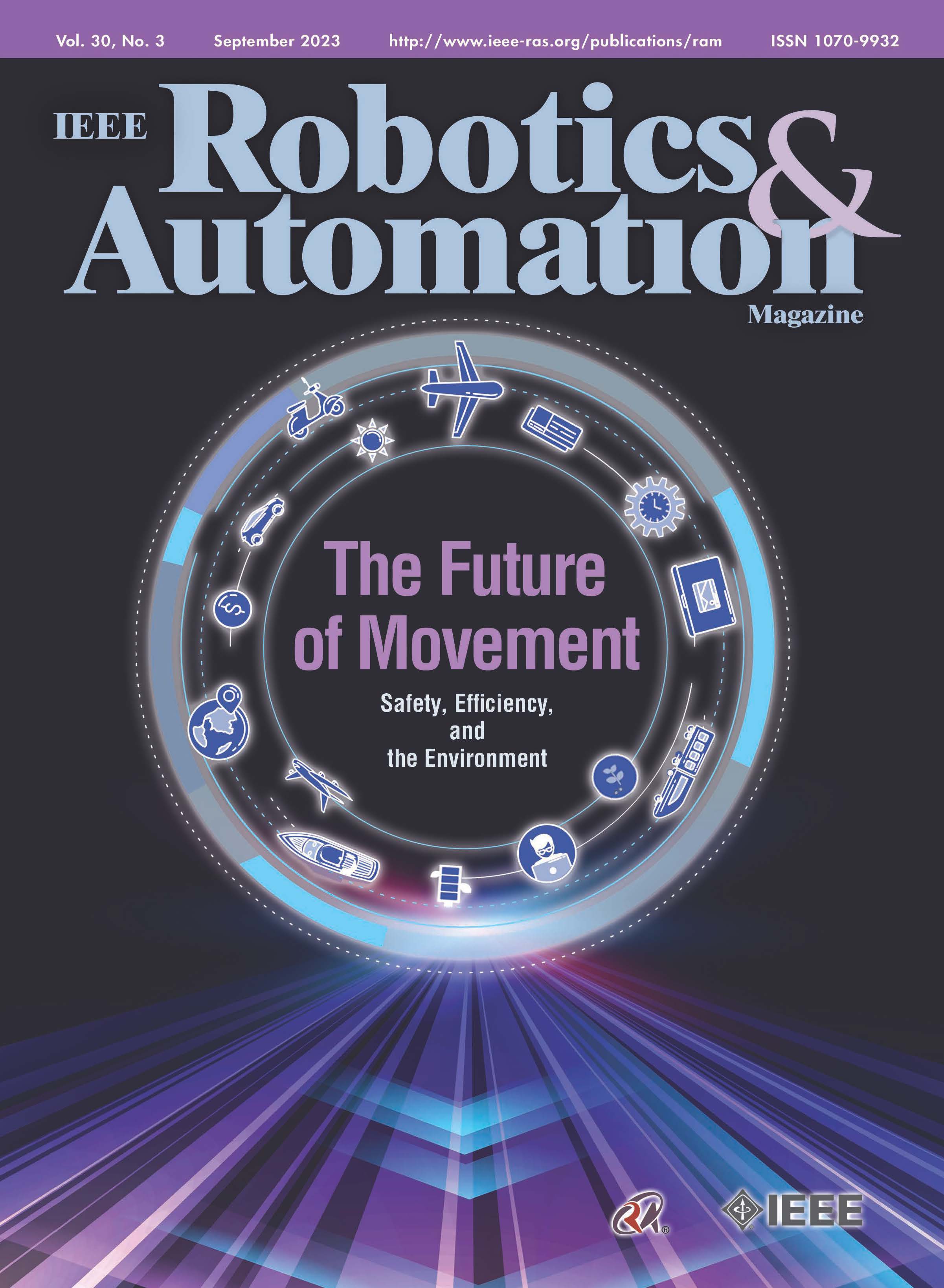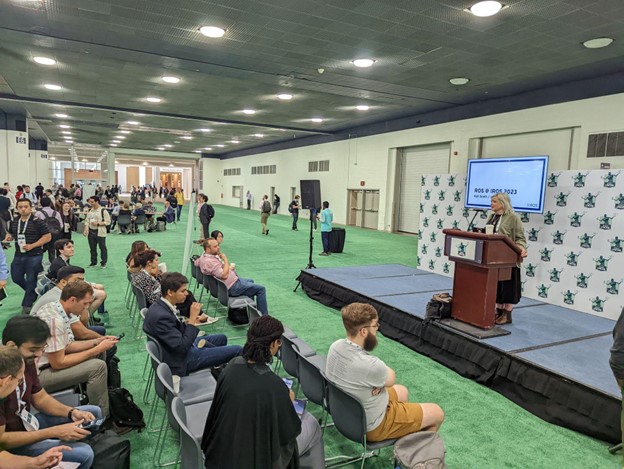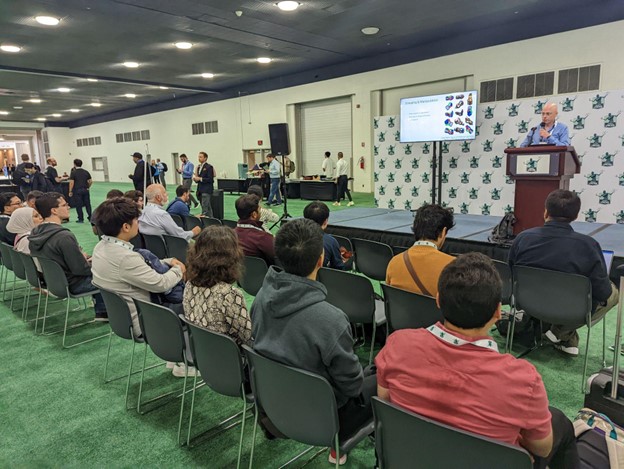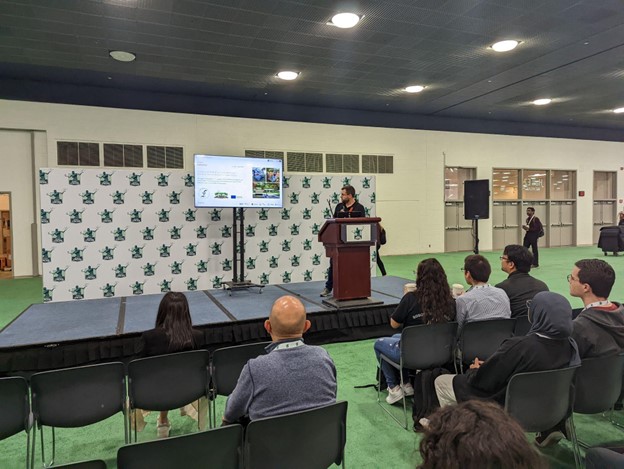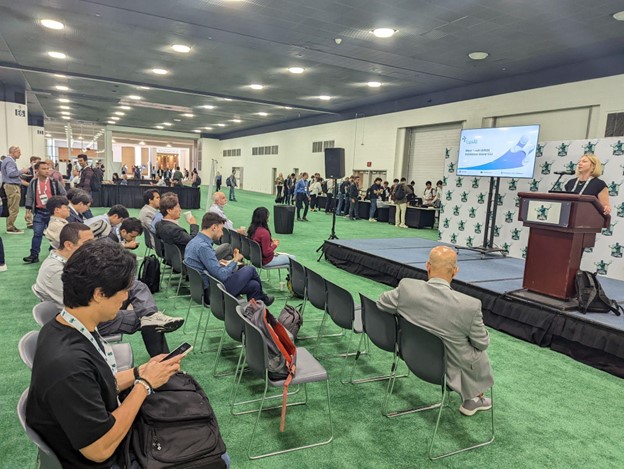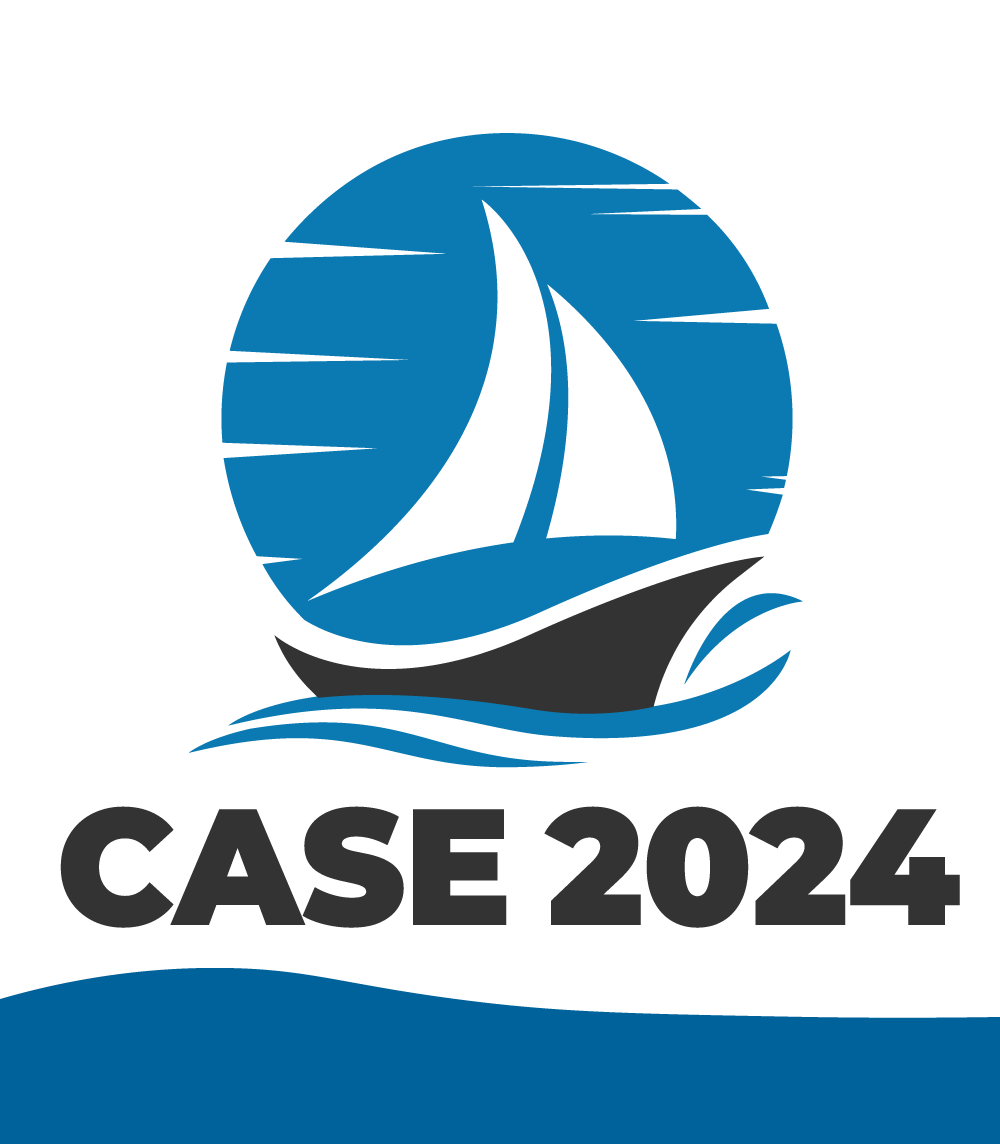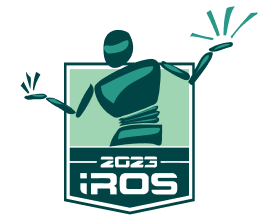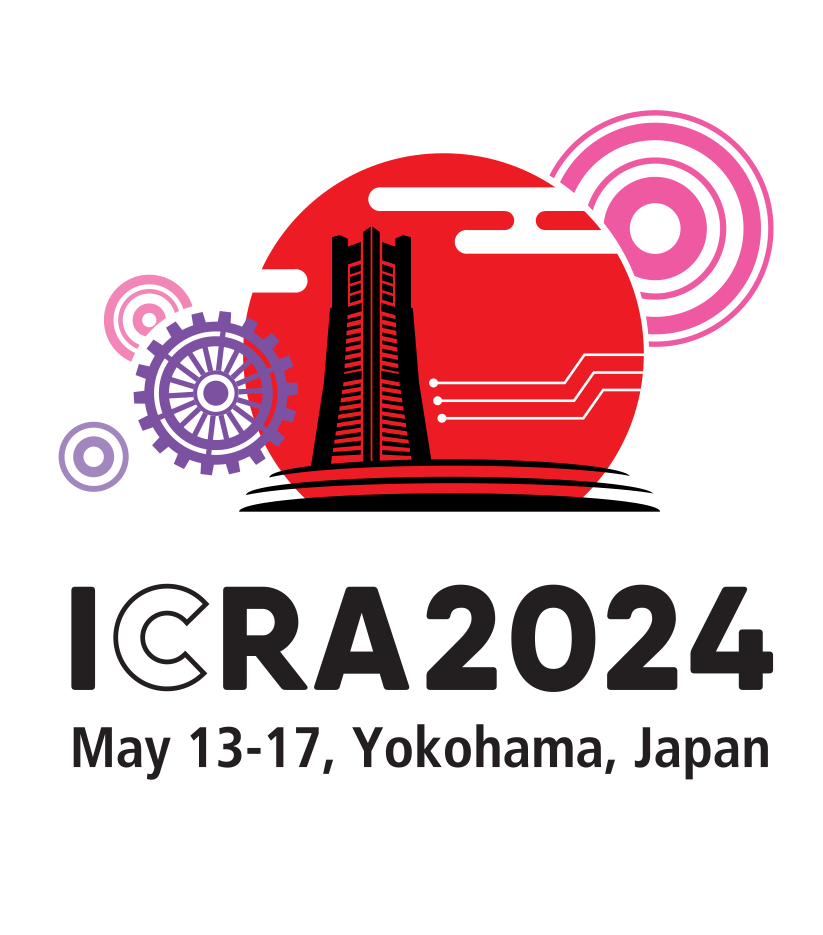Latest News
The RAS Technical Committee on Multi-Robot Systems is organizing a 2024 edition of the IEEE-RAS Summer School on Multi-Robot Systems. The Summer School will be held at the campus of Czech Technical University in Prague, Czech Republic from 29 July-2 August 2024.
The Summer School aims to promote the latest achievements in multi-robot systems and swarm robotics to students, academic researchers, and industrial practitioners, with the aim of helping all put systems of cooperating robots into practice. For more details on the subject matter focus and theme of this year’s Summer School, check out the website.
The early bird discounted registration deadline is 31 December 2023. To apply, submit your CV, personal information, and a brief statement of interest through this form. Additional application instructions and information are available at the website.
The IEEE Robotics and Automation Society (RAS) membership will elect six new members of the Administrative Committee (AdCom) in 2024, each to serve a three-year term beginning 1 January 2025. The AdCom is the governing body of the Society.
Responsibilities of AdCom Members
AdCom members must attend two formal meetings each year, one in conjunction with ICRA and the other usually in October/November in conjunction with another major conference. Each AdCom member is expected to serve on at least two boards and/or committees of the Society.
Eligibility
Any higher-grade member of the Society is eligible to serve and all higher-grade members plus graduate students may nominate candidates and vote.
To Nominate a Candidate
To nominate a candidate, whether someone else or yourself, contact the Society at ras@ieee.org by 1 May 2024.
Petition Candidates
Candidates may also petition to be on the ballot. All persons who, by the deadline, submit petitions with valid signatures and IEEE member numbers of at least 2% of the previous year-end voting membership will be placed on the ballot. Only original signatures on paper or electronic signatures submitted through the RAS petition website will be accepted. Faxed or emailed signatures are NOT acceptable. Contact the Society at ras@ieee.org to obtain a paper petition form or to set up an electronic petition.
Note: Completed petitions must be received by 1 May 2024 to be placed on the ballot.
Selection of Final Ballot
The Nominations Committee will consider all nominations and petitions and select the candidates to be placed on the ballot.
The nominations deadline for the prestigious IEEE Robotics and Automation Award is 15 Jan 2024. More about the IEEE Robotics and Automation Award and evaluation process found here: https://corporate-awards.ieee.org/corporate-awards/#field-awards
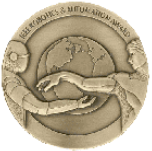
IEEE Transactions on Medical Robotics and Bionics (T-MRB) has a long-lasting connection with the IEEE International Conference on Biomedical Robotics and Biomechatronics (BioRob). The 10th edition of this conference will be held 1-4 September 2024 in Heidelberg, Germany—check out the conference website. The call for papers can be found here. Note that the submission deadline is 20 January 2024. The best papers submitted to BioRob 2024 will be invited for publication in a Special Section of T-MRB. At the end of the review process, the corresponding authors of those papers selected will receive a direct invitation from the T-MRB Editorial Board to submit the papers, with no modifications, to the journal. If the authors accept, their contributions will be published in the T-MRB Special Section instead of the BioRob proceedings, but authords will still have the opportunity to present their work at the BioRob 2024 Conference. T-MRB strongly encourages all authors in the fields of biorobotics and bionics to submit contributions to this exciting event.
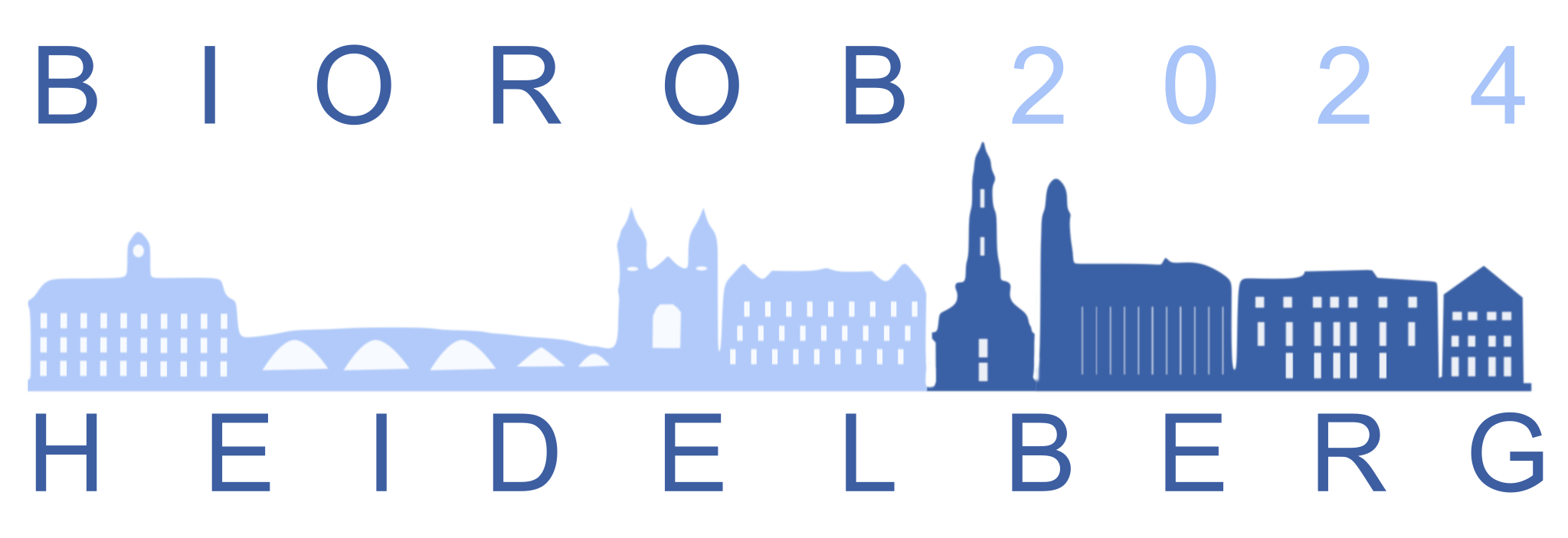
We are pleased to announce that submissions are now open for the 2024 IEEE 20th International Conference on Automation Science and Engineering (CASE 2024)! CASE 2024 will be held in Bari, Italy from 28 August-1 September 2024. CASE is one of the flagship conferences of the IEEE Robotics and Automation Society and provides a primary forum for cross-industry multidisciplinary research in automation.
We invite you to participate in CASE 2024 by submitting your contributions, including special session and workshop proposals, regular papers, industry papers, and presentation-only papers related to the conference topics.
Important Submission Deadlines
- 8 February 2024: Special session proposal submission
- 1 March 2024: Regular and special session full paper submission
- 1 April 2024: Workshop/tutorial proposal submission, Industry paper, and work-in-progress paper submission
- 30 April 2024: RA-L, T-RO, RAM, T-ASE presentation submission
To submit your proposals and papers, and for more information, please visit the CASE 2024 website.
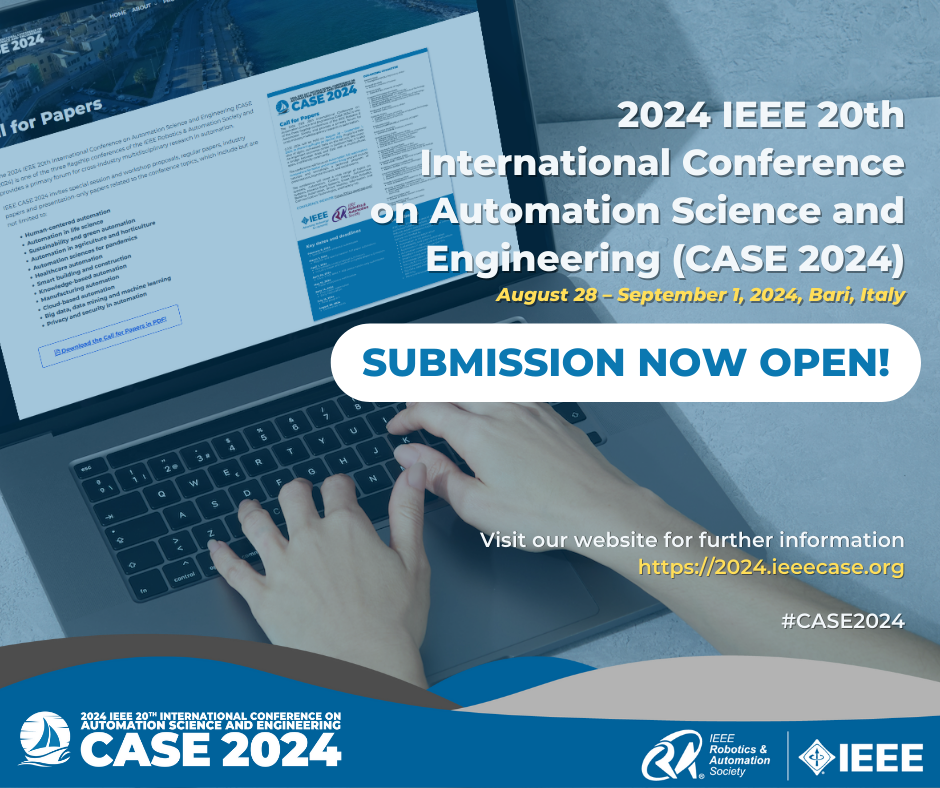
Vote today for the IEEE RAS AdCom election so we can increase last year’s percentage rate of 11.8%. Your vote counts!
VOTE NOW at https://eballot.app/ieee
You will need your IEEE Account username/password to access the ballot. For quick reference, your username is your email address. If you do not remember your password, you may retrieve it on the voter login page.
Important Access Information
Please make sure you are signed out of all other applications in your browser before attempting to log into the voting site. If you are having trouble accessing the site, it could be because you are not signed in to your IEEE Account; we recommend that you copy the link and paste into (1) a private browsing window if using Firefox or (2) an incognito window if using Chrome, and then log in with your IEEE Account information.
Voting must be completed no later than 26 December 2023. Any returns received after this date will not be counted. The online voting site will close at 4:00 pm Eastern Time.
If you have any questions about the IEEE Robotics and Automation Society voting process, please contact ieee-rasvote@ieee.org or +1 732 562 3904.
Thank you for your participation in this election.
The purpose of the IEEE/IFR Innovation and Entrepreneurship in Robotics and Automation (IERA) Award is to highlight and honor the achievements of the inventors who value creating ideas and entrepreneurs who propel those ideas into world-class products. In a joint event, the IEEE Robotics and Automation Society (RAS) and the International Federation of Robotics (IFR) will therefore recognize and honor the outstanding personal achievements of entrepreneurs in the commercialization of innovative robotic and automation technology.
These achievements will be recognized in a specially organized IEEE/IFR Joint Forum on Innovation and Entrepreneurship in Robotics and Automation, which is being held in conjunction with the IEEE International Conference on Robotics and Automation (ICRA), which will take place from 13-17 May 2023 in Yokohama, Japan.
The selected finalists will have the opportunity to present their story of the genesis of a successful innovative product in robotics and automation from its very inception to the final state of commercialization in a series of plenary lectures. The ultimate winner will be chosen by an evaluation board consisting of distinguished individuals from industry and academia. A certificate will be awarded to each finalist, and the winner will receive a prestigious plaque as well as a US$2,000 prize.
Check out this year's handout for more details on how to apply. For more information about the award, including previous winners, check out the IEEE IERA page. Please note that applications are due by February 10, 2024; they may be submitted either to secretariat@ifr.org or to ras@ieee.org.
We are pleased to announce that a new batch of IEEE Robotics and Automation Letters (RA-L) papers is now available on IEEE Xplore. Check it out!
The IEEE Robotics and Automation Society (RAS) wants to encourage students to play an active role in existing robotics standardization efforts. IEEE-RAS has a number of approved and active standardization efforts, which you can read about here, and we have set aside funds to provide partial travel support to students interested in attending the 2024 IEEE International Conference on Robotics and Automation (ICRA), which will be held in Yokohama, Japan from 13-17 May 2024. ICRA 2024 will feature numerous IEEE robotics standardization meetings.
We expect to award 3 travel grants to cover flights, hotel reservations, and conference registration within the IEEE guidelines and not to exceed $3,000 each. Priority will be given to students that would not have otherwise attended ICRA (e.g., who do not have a paper accepted), and priority will also be given to undergraduate students. Note that you do not need to be an IEEE member to apply.
Reimbursements will be processed after attendance at ICRA 2024. Selected students will be expected to participate in the full-day standards terminology harmonization meeting (if scheduled) as well as in least one standards working group meeting. They will also be required to write a 2-3 page report, submitted to IEEE-RAS, describing their experiences at the conference and how they expect to use what they learned in the future.
To apply for the travel grant, email the following to Dr. Craig Schlenoff (Associate Vice President of Standardization with the RAS Industrial Activities Board) at ras@ieee.org in a Word or PDF document.
- Name
- Contact Information (university, address, phone, email)
- An essay (maximum 1000 words) describing the following:
- Your overall interest in robotic standards
- Which IEEE Robotics Standards efforts most interest you and why
- Plans and expectations for how you will incorporate robotic standards in your continued education and your future career
- Plans for continuing participation in robotics standardization efforts
Applications are due 1 February 2024 and notification of acceptance is expected on or around 1 March 2023.
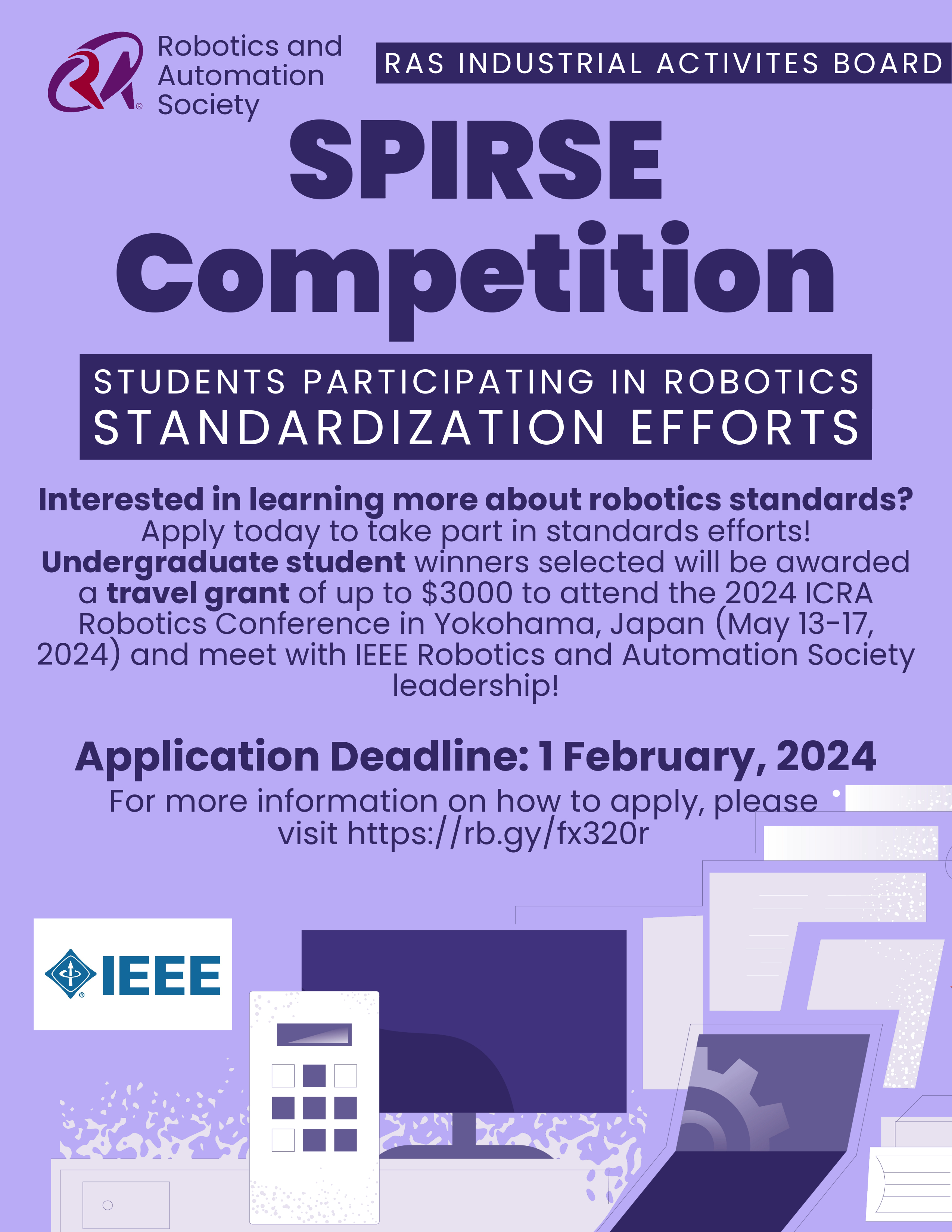
We are pleased to announce that Volume 5, Issue 4 of IEEE Transactions on Medical Robotics and Bionics (T-MRB) is now available on IEEE Xplore. Click here for the table of contents and check out the issue now on Xplore!
By Abderrahmane Kheddar, on behalf of the French Research Robotics Network (GDR Robotique)
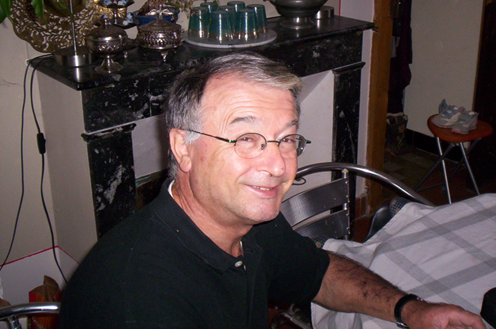
It is with deep sadness that we share the news of the passing of Professor Philippe Coiffet on Friday, 20 October, at the age of 83. Philippe was a remarkable person. As a scientist, he was a visionary and open-minded researcher; he dedicated his life to the field of robotics (in particular, telerobotics and virtual reality) and leaves us a rich legacy. On a human level, he was incredibly friendly and kind, and an outstanding mentor for his students.
Philippe Coiffet, born in 1940 in Pompaire (Deux Sèvres), France, received a doctorate in nuclear physics from Orsay University. He spent his entire scientific career at the Centre national de la recherche scientifique (CNRS). In 1972, he set up the first public robotics research team at the University of Montpellier. Since then, he has taken several secondments. He has been a project manager for the French Ministries of Industry and Higher Education and Research, where he set up the Ateliers Inter-établissements de Productique (AIP). Philippe Coiffet also coordinated France's first robotics program, Automatisation et Robotique Avancées (ARA), from 1980 to 1984, set up by the CNRS and directed by Georges Giralt. He was a visiting professor at the University of California, Santa Barbara (1985-1986, robotics center) and a professor at Institut National des Sciences et Techniques Nucléaires (INSTN). He was one of the founders of the Laboratoire de Robotique de Paris (LRP), of which he was a member from 1987 to 1999. He also created the Centre de Robotique Intégrée d'Ile de France (CRIIF), a center dedicated to innovation that bridges academia and industry in robotics; he was the director of CRIIF from 1987 to 1991. With Dr. Kazuo Tanie, he established the Joint Research Laboratory (JRL), an international joint research unit between CNRS and the National Institute of Advanced Industrial Science and Technology (AIST) in Tsukuba, Japan, dedicated to research in humanoid robots. As a professor at INSTN, he set up a masters degree in robotics as well as two specialties in robotics and production engineering, one at INSTN and the other at the University of Transilvania in Brasov (Romania), of which he is Doctor Honoris Causa.
Philippe Coiffet's early work was mainly in telerobotics and computer-assisted teleoperation, on which he worked with Jean Vertut at the Nuclear French Authority (CEA); he also worked on bimanual telerobotics and computer assisted telerobotics for nuclear facilities maintenance. Later, he shifted his research toward virtual reality, in collaboration with Professor Grigore Burdea from Rutgers University. He developed the first force feedback data glove in France, and he worked on enhancing computer-assisted telerobotics with virtual and augmented realities. He has published over twenty scientific books on robotics and virtual reality, most of them translated into English and some into other languages, as well as over 300 articles on these subjects.
Philippe Coiffet was Vice President of Association Française de Robotique Industrielle (AFRI) and received the Engelberger Award from the US Robot Industry Association (RIA). He was a founding member of the National Academy of Technology of France. Philippe Coiffet is a Knight of the Légion d'Honneur.
At this link (www.lirmm.fr/philippe-coiffet/), you can leave a personal message to remember and honor Philippe.
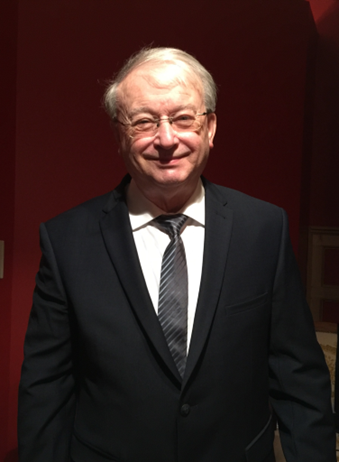
The 2023 IEEE/RSJ International Conference on Intelligent Robots and Systems (IROS) showcased the latest commercialization in robotics and proved to be a successful forum for networking with the world’s leading robotics research labs and companies. For highlights, read below and check out this piece from Silicon Valley Robotics by Andra Keay, the RAS Vice President of Industrial Activities.
Industry Tech Talks
The Tech Huddle Stage was one of the first things attendees saw when they walked into the Expo area. This program thus saw excellent turnout at its presentations throughout the convention, which were organized by the RAS Industrial Activities Board (IAB) and IROS 2023 conference organizers. Talk highlights included the following.
Aadeel Akhtar of Psyonic showcased their groundbreaking Ability Hand, complemented by a captivating video that demonstrated the hand's control via a direct brain interface.
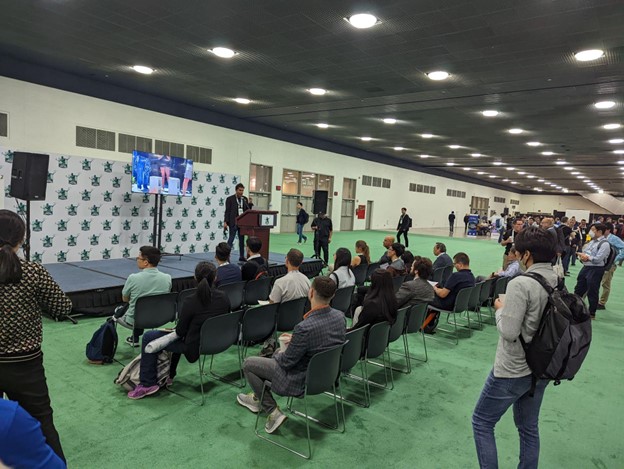
Figure 1. Aadeel Akhtar, Psyonic
Federico Pecora from Amazon Robotics discussed the opportunity for creating foundational ML models tailored for their expansive fleet of warehouse robots.
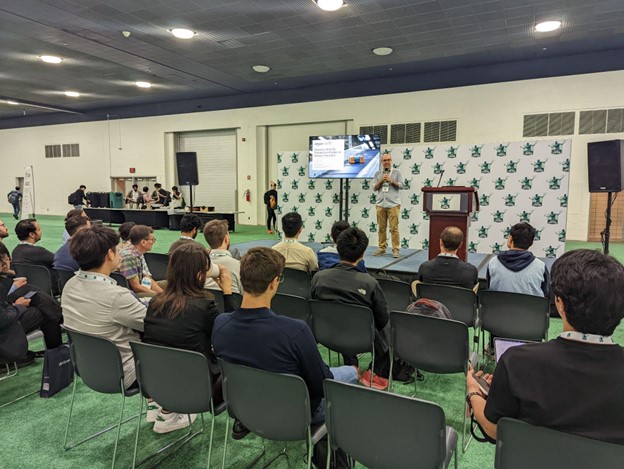
Figure 2. Federico Pecora, Amazon
In addition, Frank Naccarato of Quantum Robotic Systems spoke about ROSA, a distinctive stair-climbing AMR designed for home aid applications.
The IAB hopes to collaborate with conference organizers in the future on similar Tech Huddle or Tech Talks events.
|
Figure 3. Katherine Scott, Intrinsic.ai / Open Robotics |
Figure 5. Florian Pokorny, KTH |
|
Figure 4. Narcis Miguel Banos, PAL Robotics |
Figure 6. Sviatlana Höhn, LuxAI S.A. |
Startup Mentorship Program
Following a similar format to the popular Tech Huddles, the RAS IAB and IROS 2023 conference organizers set aside an area of the Expo Floor for small groups to meet for startup mentorship. In this pilot program, startup entrepreneurs heard advice on fundraising, product development, manufacturing, sourcing, and scaling.
Entrepreneurs were introduced to the new “Manufacturing Checklist” course being developed by the IAB. The course is going to launch online in 2024; it provides a framework for future RAS Startup Bootcamps, Workshops, and Office Hours. The next RAS Startup Workshop is being planned for Rotterdam in early November. The IAB will look to expand startup programming at future RAS conferences.
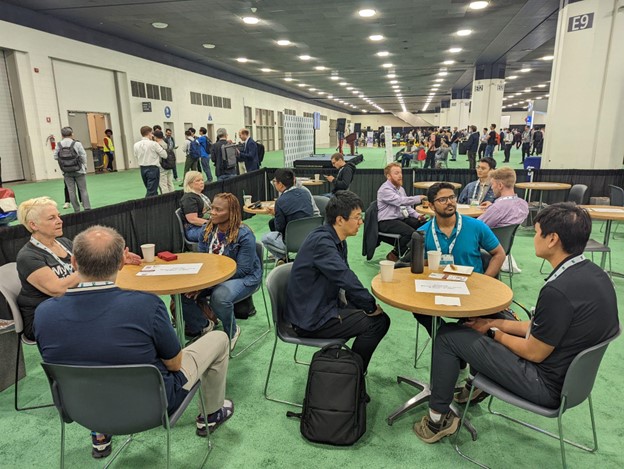
Figure 7. Startup Mentorship Office Hours at IROS 2023
We are thrilled to announce the appointment of Craig Schlenoff as the Deputy Director and Incoming Director of the Networking and Information Technology Research and Development (NITRD) National Coordination Office at the White House. This appointment serves as a testament to Dr. Schlenoff’s exceptional work at the National Institute of Standards and Technology (NIST) and as Associate Vice President of Standards for IEEE-RAS.
As Deputy Director and Incoming Director, Craig Schlenoff will be pivotal in shaping the nation's research and development efforts in networking and information technology. He will spearhead initiatives to drive innovation, enhance national security, and bolster the United States’ position as a global leader in technological advancements.
We extend our warmest congratulations to Craig Schlenoff on this well-deserved appointment and eagerly anticipate the positive impact he will make in his new role for the next year. Meanwhile, he will continue in his role with IEEE-RAS, facilitating the increasingly important International Standards Working Group meetings, the development of new standards study groups, and the annual Standards Scholarships to assist students in attending standards meetings at IEEE-RAS conferences.
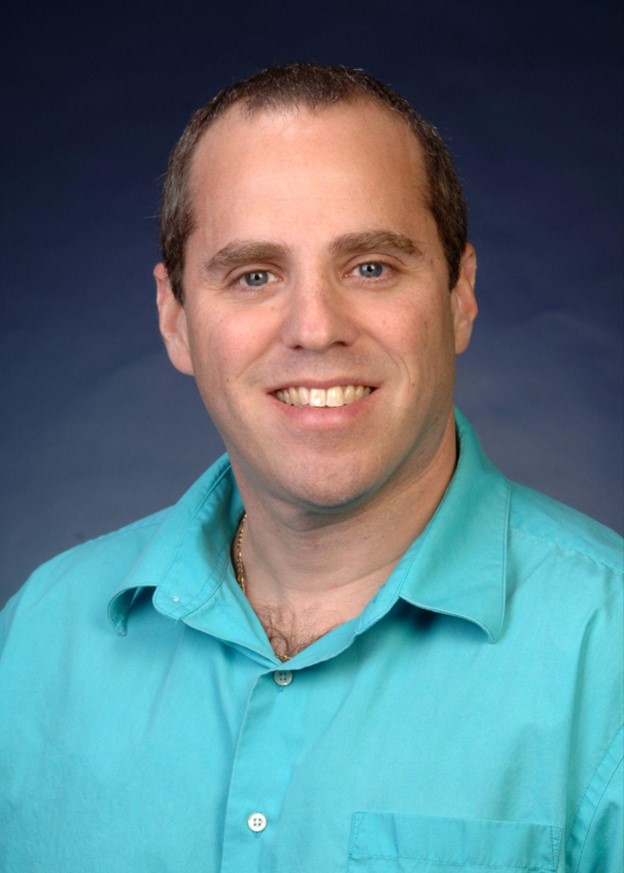 |
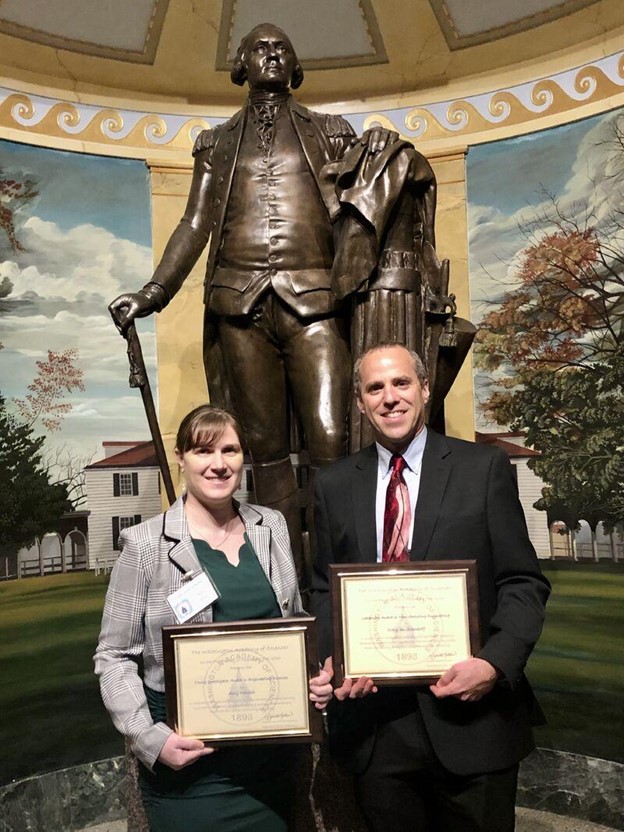 |
The IEEE Robotics and Automation Society is most pleased to announce that Davide Scaramuzza has been selected as the recipient of the prestigious 2024 IEEE Kiyo Tomiyasu Award. Professor Scaramuzza was selected “for contributions to agile visual navigation of micro drones and low-latency robust perception with event cameras.” Professor Scaramuzza will receive the award at the 2024 International Conference on Robotics and Automation (ICRA), which will be held in Yokohama, Japan from 13-17 May 2024.
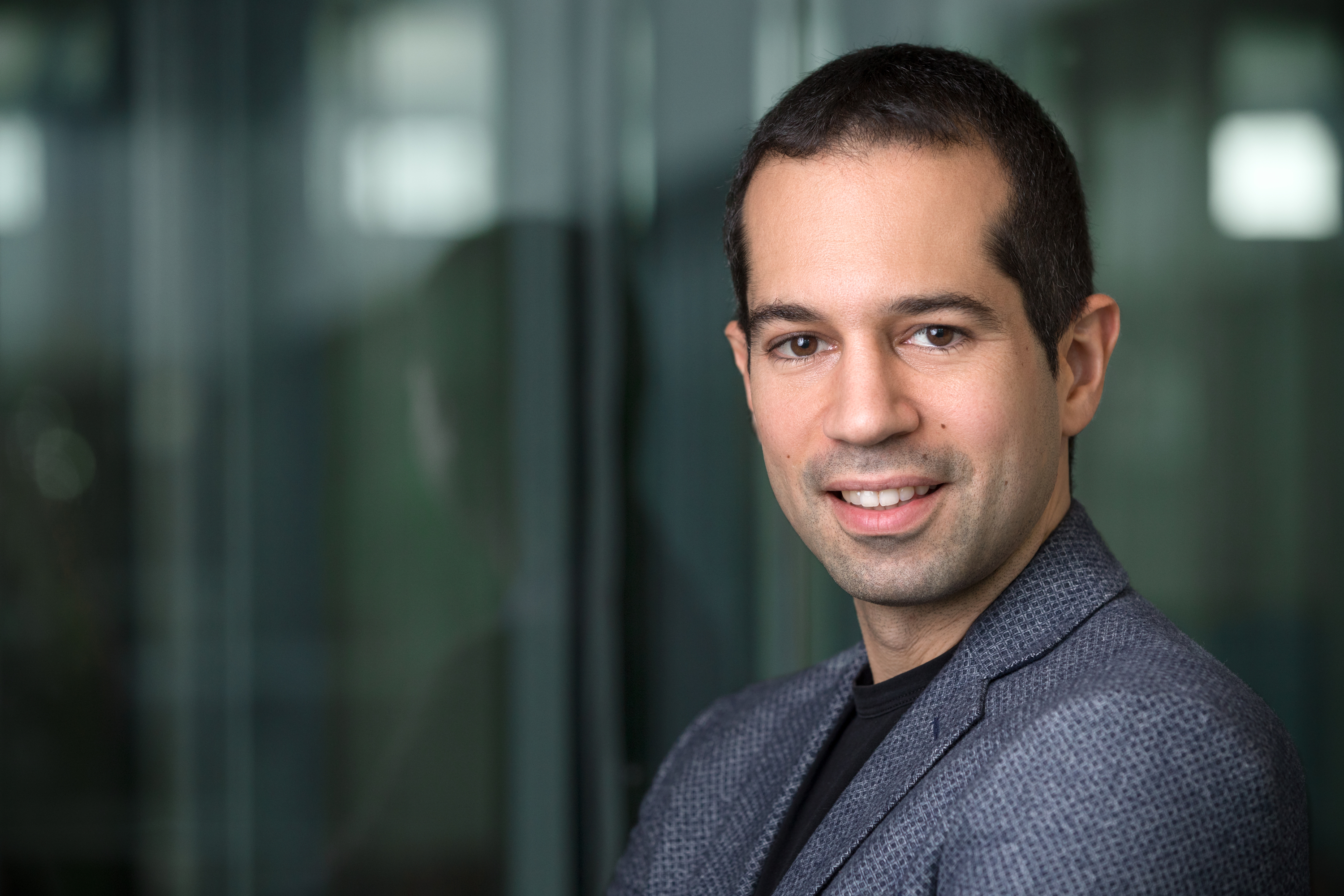 |
Davide Scaramuzza is an international authority in the field of robotics, specifically in agile visual navigation for micro drones and robust perception using event cameras on low-latency systems. His research has been instrumental in enhancing the autonomy, agility, decision-making, and safety capabilities of modern flying robots and autonomous systems. He pioneered autonomous, vision-based navigation of drones, which inspired the navigation algorithm of the NASA Mars helicopter. And, in 2022, his team demonstrated that an AI-controlled, vision-based drone could outperform the world champions of drone racing. His work at the intersection of traditional robotics theory and visual navigation techniques has translated to innovative commercial products that have real-world impact and generate new value for society. An IEEE Senior Member, Scaramuzza is Professor and Director of the Robotics and Perception Group, University of Zurich, Zurich, Switzerland. |
About the IEEE Kiyo Tomiyasu Award
The IEEE Kiyo Tomiyasu Award is sponsored by the late Dr. Kiyo Tomiyasu, the IEEE Geoscience and Remote Sensing Society, and the IEEE Microwave Theory and Techniques Society. It was established in 2001 to recognize outstanding early to mid-career contributions to technologies holding the promise of innovative applications. Recipient selection is administered through the Technical Field Awards Council of the IEEE Awards Board.
More information and a list of past recipients can be found here.
The IEEE Robotics and Automation Society is most pleased to announce that Paolo Dario has been selected as the recipient of the prestigious 2024 IEEE Robotics and Automation Award. Professor Dario was selected “for establishing and advancing bionics and biorobotics as key research areas worldwide, integrating robotics and medicine.” Professor Dario will receive the award at the 2024 International Conference on Robotics and Automation (ICRA), which will be held in Yokohama, Japan from 13-17 May 2024.
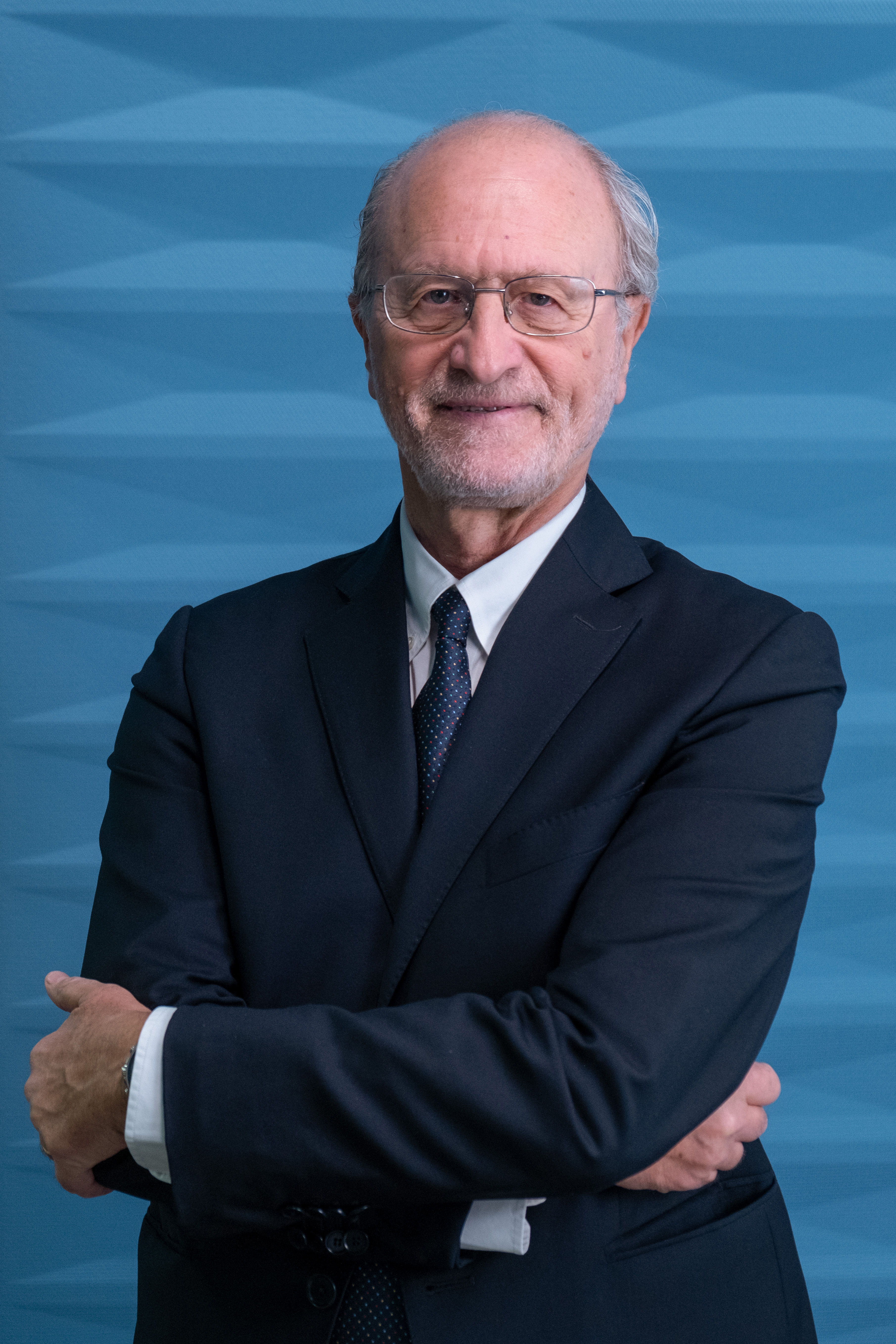 |
Paolo Dario is the father of biorobotics. The techniques he innovated are the basis for the practical application of robotics in engineering and medicine, including minimally invasive surgery and rehabilitation devices for the elderly and disabled. He was one of the main proposers of bio-inspired sensors and devices, and of medical applications of robotics, at a time when they were unknown to most roboticists. His pioneering work in tactile sensing and artificial perception for robots enabled cybernetic prostheses that directly interfaced with the nervous system. He has also contributed to the development of neurorobotics, which combines the latest advances in neuroscience with robotics to expand the capability of human-robot interaction and empower the robot with human intelligence. An IEEE Life Fellow, Dario is Professor Emeritus of Biomedical Robotics, Scuola Superiore Sant’Anna, Pisa, Italy. |
About the IEEE Robotics and Automation Technical Field Award
The IEEE Robotics and Automation Technical Field Award (TFA) was established in 2002 by the IEEE Board of Directors. This TFA is presented for contributions in the field of robotics and automation; it is sponsored by the IEEE Robotics and Automation Society.
More information and a list of past recipients can be found here.
Congratulations and welcome to the following newly organized IEEE Robotics and Automation Society (RAS) Chapters:
REGION 3
USA
- Atlanta Section Joint Chapter, Robotics and Automation Society and Sensors Council
REGION 8
KENYA
- Technical University of Kenya, Robotics and Automation Society Student Branch Chapter
NIGERIA
- Nnamdi Azikiwe University, Robotics and Automation Society Student Branch Chapter TUNISIA
- I. Information and Communication Technologies, Robotics and Automation Society Student Branch Chapter
REGION 9
- Universidad Nacional de San Agustin, Robotics and Automation Society Student Branch Chapter
REGION 10
INDIA
- Amrita Vishwa Vidyapeetham-Mysuru, Robotics and Automation Society Student Branch Chapter in the Bangalore Section
- Anil Neerukonda Institute of Technology and Sciences, Robotics and Automation Society Student Branch Chapter
- Bansal Institute of Engineering and Technology-Lucknow, Robotics and Automation Society Student Branch Chapter
- College of Engineering - Karunagappally, Joint Computer and Robotics and Automation Society Student Branch Chapter
- National Institute of Engineering-Mysore, Robotics and Automation Society Student Branch Chapter
- P A College of Engineering-Mangalore, Robotics and Automation Society Student Branch Chapter
- Reva University, Robotics and Automation Society Student Branch Chapter in the Bangalore Section
- Sree Vidyanikethan Engineering College-Tirupati, Robotics and Automation Society Student Branch Chapter
- Symbiosis Institute of Technology-Pune, Robotics and Automation Society Student Branch Chapter
- Vidya Jyothi Institute of Technology, Robotics and Automation Society Student Branch Chapter
Kazakhstan
- IEEE Kazakhstan Computational Intelligence and Robotics and Automation Societies Joint Chapter
Sri Lanka
- Informatics Institute of Technology, Robotics and Automation Society Student Branch Chapter
Congratulations to the IEEE Robotics and Automation Society Members recently elevated to Senior Member status by the IEEE Admission and Advancement Senior Member Review Panel.
To be eligible for application or nomination, candidates must
- be engineers, scientists, educators, technical executives, or originators in IEEE-designated fields
- have experience reflecting professional maturity
- have been in professional practice for at least 10 years (with some credit for certain degrees).
In addition, candidates for Senior Member grade must supply three references from current IEEE Members holding the grade of Fellow, Senior Member, or Honorary Member. For more information, visit https://www.ieee.org/membership/senior/ or email senior-member@ieee.org. The names and affiliations of the new Senior Members are as follows, listed alphabetically by Region:
|
Region 1 Taskin Padir Worcester County Section Paul Robinette Boston Section Milad Siami Boston Section |
Region 2 Axel Krieger Baltimore Section Rahul Mangharam Philadelphia Section Eric Stich Worcester County Section |
Region 3 Nicola Bezzo Central Virginia Section Gokhan Erdemir Chattanooga Section Yu Wang Gainesville Section |
|
Region 4 Siddharth Agarwal Southeastern Michigan Section Brenna Argall Chicago Section Bing Li Milwaukee Section Byung-Cheol Min Central Indiana Section Mario Santillo Southeastern Michigan Section Patrick Wensing Calumet Section |
Region 5 Hemadri Doma High Plains Section Christoffer Heckman Denver Section Amol Kakade Houston Section |
Region 6 David Yushan Fong Santa Clara Valley Section Wen Lik Lui Santa Clara Valley Section Balamurugan M Santa Clara Valley Section Santhosh Nag Santa Clara Valley Section Thomas Stevens Tucson Section |
|
Region 7 Mokhles Abdulghani Vancouver Section Tuheen Ahmmed Ottawa Section Allen Upward Vancouver Section |
Region 8 Tamim Asfour Germany Section Daniele Cafolla United Kingdom and Ireland Section Roberto Calandra Germany Section Graziana Cavone Italy Section Dimitris Chrysostomou Denmark Section Omar Garcia Crespillo Germany Section Filippo Dippolito Italy Section Sami Elmadssia Saudi Arabia Section Pietro Falco Italy Section John Kagoro Uganda Section Federica Pascucci Italy Section Felice Andrea Pellegrino Italy Section Jose-Luis Sanchez-Lopez Benelux Section Matteo Saveriano Italy Section Abdalla Swikir Germany Section Barkan Ugurlu Turkiye Section |
Region 9 J Anibal Arias Morelos Section Jorge Cruz Duarte Monterrey Section Luis Gutierrez Colombia Section Roberto Moreno Chile Section Eduardo Espinoza Quesada Mexico Section |
|
Region 10 Ponmalara A Madras Section Sanjeevi Gandhi A Madras Section Shabir Ahmad Seoul Section Ms. Sangeerani Devi Aranganathan Madras Section Ponshanmugakumar Arunachalam Madras Section Ebubekir Avci New Zealand Central Section Richard Bowyer South Australia Section He Chen Beijing Section Diwadalage Kasun Prasanga De Silva Sri Lanka Section Rui Fan Shanghai Section Lihang Feng Nanjing Section Jayanthi Ganesan Madras Section Liu Gangfeng Harbin Section Kumar Gaurav Delhi Section Dr. S Venu Gopal Hyderabad Section Mahmudul Hasan Bangladesh Section Shilpa Hudnurkar Pune Section Walter Hyde Beijing Section Kamalakannan J Madras Section Jegan Amarnath J Madras Section Deepak Joshi Delhi Section Ayoung Kim Seoul Section Sreeja Kochuvila Bangalore Section Balaji Navaneetha Krishnan Madras Section Baoquan Li Beijing Section Raymond Wing-Fai Leung New South Wales Section Huashan Liu Shanghai Section Xiao-feng Liu Nanjing Section Pachhaiammal Priya M Madras Section Narayan Mane Pune Section Biao Mei Beijing Section Banibrata Mukherjee Kharagpur Section Sridharan P Madras Section Suthahar P Madras Section Hardik Pandya Bangalore Section Manh Duong Phung Vietnam Section Chenkun Qi Shanghai Section Qiquan Quan Harbin Section Sampath R Madras Section Vigneswaran R Madras Section Edward Rankin Singapore Section Anjan Ray Kolkata Section Parag Rughani Gujarat Section Premalatha S Madras Section Mandar Sapre Bombay Section Ahn Ho Seok New Zealand North Section Christopher Ezhil Singh Sreedharan Kerala Section Girish Subbarao Bangalore Section Sathies Kumar T Madras Section U-Xuan Tan Singapore Section Karthick Thiyagarajan New South Wales Section Tamilarasan Uthirapathy Madras Section Uma Maheswari V Hyderabad Section Mohini Vyawahare Bombay Section Zhongkui Wang Kansai Section Xiaochen Xie Guangzhou Section Rong Xiong Nanjing Section Pandurangaiah Y Hyderabad Section Haibin Yan Beijing Section Qilong Yuan Singapore Section Yimin Zhang Beijing Section Guyue Zhou Beijing Section |
RAS is seeking applications for the Member Activities Board’s Student Activities Committee (SAC). There are openings for one Chair and one or more Co‐Chairs. These positions offer great opportunities to learn more about the Society, have an international impact, and expand one’s professional network. The Chair will serve for two calendar years (2024-2025) with an onboarding phase until ICRA 2024, and the co‐chairs will serve a one‐year term in 2024, which is renewable for a second year.
The RAS SAC promotes student participation in Society activities in co‐operation with all Society Boards, Committees, and Working Groups, under the supervision of the Member Activities Board. The SAC’s mission includes working on issues of interest to Student Members and interacting with Student Members and Student Branch Chapters. Current areas of focus include:
- Lunch with Leaders held at flagship conferences (ICRA, CASE, IROS)
- Fun informal social events at RAS-sponsored conferences
- Educational webinars
- Membership development
- SAC website and social media content management
- Coordination with Student Branch Chapter Chairs
- SAC column in IEEE Robotics & Automation Magazine (quarterly publication)
Description of Roles:
Chair: The Chair will be responsible for managing the SAC and its efforts. The Chair of the SAC will be one of 24 voting members on the RAS Administrative Committee (AdCom). The Chair is expected to attend semi-annual AdCom meetings, which are held in conjunction with ICRA and IROS conferences. Travel support of up to $4000 USD is provided by the Society to attend these meetings. The Chair shall also serve on and report to the Member Activities Board.
Social Media & RA-M Co-Chair: This Co-Chair is responsible for managing media communications to promote the activities of the SAC and the Society to students, which includes maintaining an online presence as well as making announcements on social media. This Co-Chair will also be responsible for contributing and collecting reports for the Student’s Corner column articles for the quarterly IEEE Robotics & Automation Magazine (RA-M).
RSR Coordinator Co-Chair: This Co-Chair will be the primary channel of communication between the Regional Student Representatives (RSRs) and the SAC, as well as various Student Chapters directly as required. They are also expected to promote communication between various Chapters in the Society and assist RSRs when necessary. The Co-Chair is also expected to work with the RSRs to highlight student chapter activities for the RA-M Chapter and International Activities column.
Technical Activities Co-Chair: Several of the 45 IEEE Technical Committees of RAS, which cover different scientific and technical areas in robotics and automation, are introducing student representatives, and these numbers are expected to grow. This new Co-Chair will organize the activities of these student representatives and serve as a liaison to SAC.
Conference Event Co-Chair: This is a more fluid role that exists to help coordinate or organize events or volunteers during ICRA, IROS, or CASE. This individual will likely be expected to work closely with conference Organizing Committees to accomplish various tasks, e.g., organizing student-led tutorial sessions.
Candidates may be undergraduate or graduate students, but they must be Student Members of the IEEE Robotics and Automation Society in good standing. The ideal candidate has strong social, professional, and communication skills and is willing to take part in ongoing activities and propose new initiatives. Past participation in SAC is preferred but not required. There is no geographical preference.
Currently, the SAC has several initiatives to promote active networking, interdisciplinary dialogues, and robotics education. Some initiatives require weekly SAC involvement while other activities are conference specific (such activities are currently developed around the RAS flagship conferences: IROS, ICRA, and CASE). More information about current activities can be found at the RAS SAC webpage.
Interested applicants should be:
- Self-motivated
- Organized
- Responsive to email discussions
- Able to commit 5+ hours a week to SAC material, potentially more when required for specific activities (g., reviewing volunteer proposals, organizing conference activities, etc.)
If you wish to be considered, please complete an application form by 15 November 2023; please indicate whether you are applying for the Chair or Co-Chair position (please specify one or more Co-Chair positions). Be sure to include the following information:
- A letter indicating the applicant’s interest in serving on the SAC and relevant experience (2 pages maximum)
- A CV or résumé (2 pages maximum)
- A letter of support from a faculty member at your college or university (preferably a current member of IEEE and RAS)
For more information on the SAC and current activities, refer to the IEEE RAS SAC webpage.
We are pleased to announce that Volume 16, Issue 3 of IEEE Transactions on Haptics (ToH) is now available on IEEE Xplore. Click here for the Table of Contents and check out the issue now!
We are pleased to announce that the September 2023 issue of IEEE Robotics & Automation Magazine (Volume 30, Issue 3) is now available on IEEE Xplore. Click here for the table of contents and check out the issue now on Xplore!
